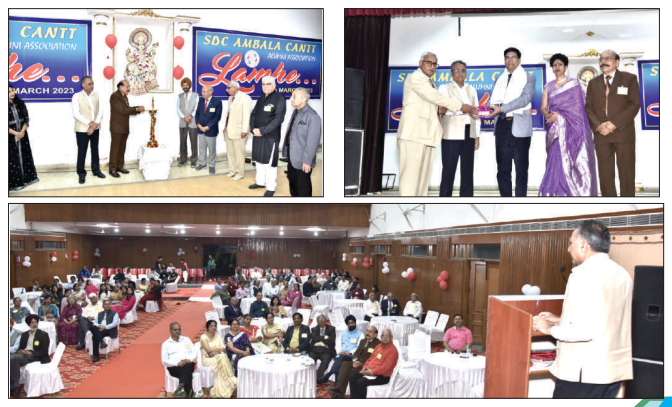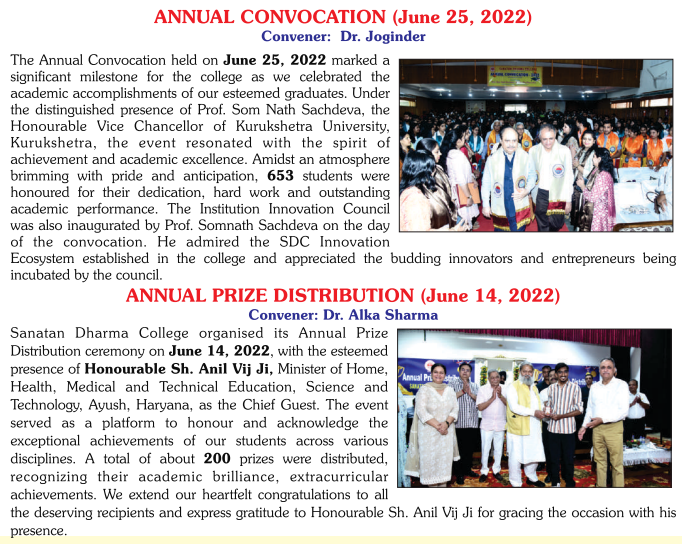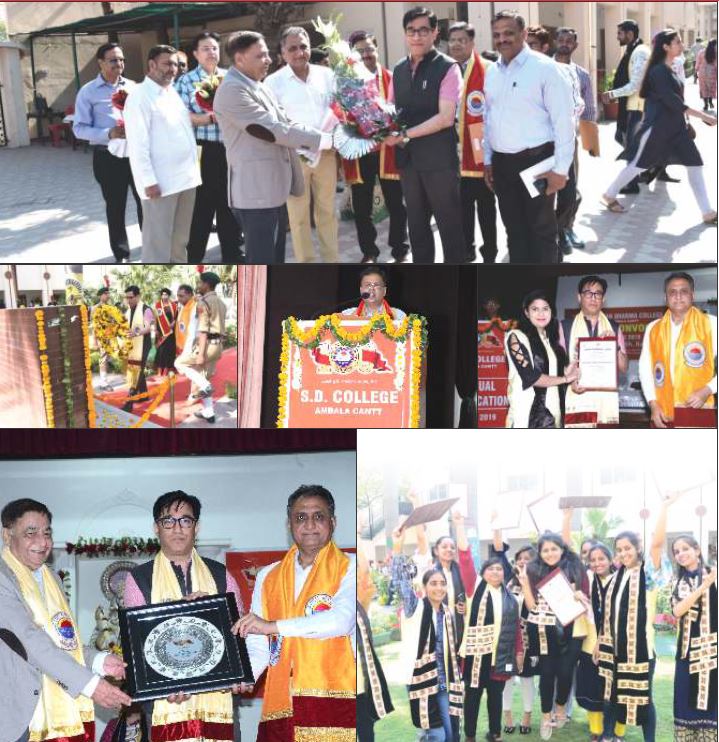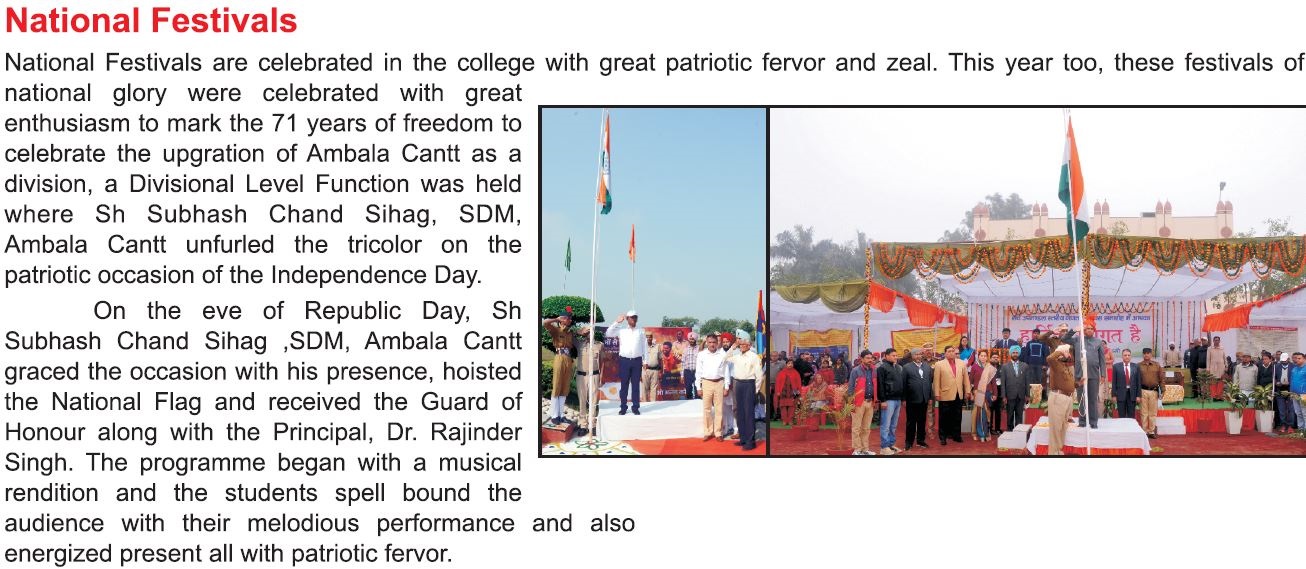National Festivals
India is a land of diverse cultures, traditions, and religions, which gives rise to many festivals. National festivals in India, however, are celebrated by people across the country, cutting across religious and cultural boundaries. These festivals hold significance for the entire nation and are often marked by public holidays and widespread celebrations. Every year national festivals are celebrated in the college campus with a spirit of unity, patriotism, and respect for the country’s history and its diverse heritage. The two main national festivals in India which are celebrated by the college are:
1. Independence Day (15th August)
- Significance: Independence Day marks India’s freedom from British colonial rule on August 15, 1947.
- Celebrations: The day is celebrated with flag-hoisting ceremonies, patriotic songs, speeches, and cultural performances. The main event is held at the Red Fort in Delhi, where the Prime Minister hoists the national flag and delivers a speech. Across the country, people celebrate by decorating their homes, offices, and schools with tricolors, organizing parades, and remembering the sacrifices of freedom fighters.
2. Republic Day (26th January)
- Significance: Republic Day celebrates the day India adopted its Constitution and became a republic on January 26, 1950.
- Celebrations: A grand parade is held at Rajpath, Delhi, showcasing India’s cultural diversity, military strength, and achievements in various fields. The President of India presides over the event, and it includes a display of military prowess, tableaus representing different states, and performances by schoolchildren. Across the country, flag-hoisting ceremonies and patriotic events are organized.








